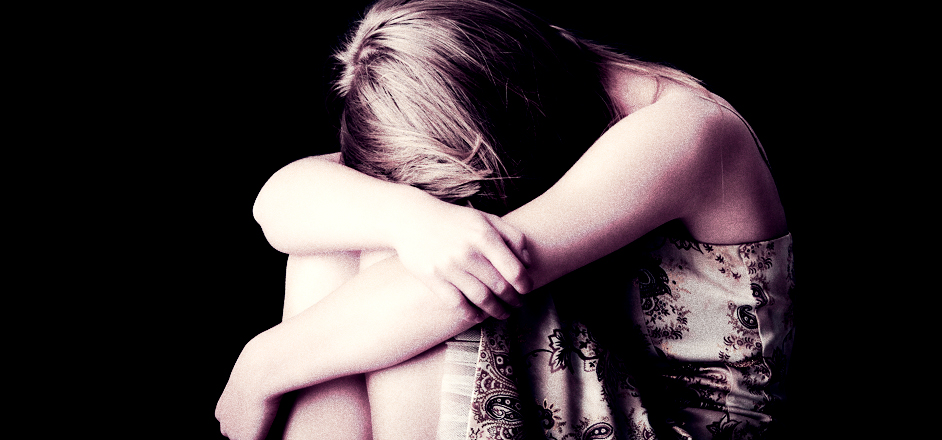Watch what you say, kids are watching …
For the first time in reported history, federal researchers have found that the suicide rate among U.S. middle-school students (aged 10-14) has surpassed deaths in the same age group caused by automobile accidents.
It means there’s something good happening by way of car safety, but also something very disturbing going on with the mental health of our most fragile commodities.
In 2014 (the latest year of which numbers are available), the Centers for Disease Control and Prevention reports that 2.1 children per 100,000 decided to end their lives early (or exactly 425 kids that year alone), up from 0.9 just seven years before. By contrast, there were 1.9 kids per 100,000 that died from automobile accidents.
Because of its multi-layered complexities, the sharp spike in suicide rates has experts baffled as to why it actually happens — more so why it’s prevalence is higher than before. Since the whole area is complicated, many in the field are asking for people not to assume before more facts can be studied and released.
"Any rise (in youth suicides) should be of concern, there's no doubt," Mark Kaplan, a professor of social welfare at the University of California, Los Angeles, tells NBC News. "In time we might uncover some reasons, but a cautionary note [is] not to rush to any conclusions from this."
My question is: Should any of us act surprised?
(click image for more info)
Regardless of arbitrary social strata, being a young adult is a disastrous time in anyone’s life. It’s a point where things begin to change, mentally, physically and otherwise. The world opens up from a secluded shelter of structure to a bulbous mass of global fuckery. It’s confusing. It’s frightening.
Couple that with changes in hormones and the beginning of detained sexual experiences, and you have yourself a young human running around with its proverbial head cut off. Puberty, at best, can only be described as a long-winded chicken dance with no endgame in sight.
Not to mention that right now, adults are complete fucking assholes to each other. That always helps a child find meaning, doesn't it?
And we’re supposed to be shocked that kids want to end their lives early?
I was that age once too. And like those times probably were for many of you, it sucked. But my formative years were all before a thing called the Internet got hold of every facet of our existence. Nothing I ever did wrong was archived to pull back up years later. Kids at school couldn’t print out a Tweet I had ignorantly posted to use against me on the schoolyard. Bullying existed, but it was so much less advanced than it is now.
"People at my school use Instagram a lot to tease other kids," 14-year-old 'Claire' tells me, a daughter of one of my close friends from high school. "But nobody takes it to teachers, so it's kind of hidden from them. It happens all the time, just no one knows about it."
It reminds me of a story that went viral some months ago about two teenage girls who dressed up as “rape victims” and posting about it on Snapchat. Apparently, the photo circulating with the story went undoctored for hours, revealing the identities of children making a bad decision before news organizations picked it up and blurred their faces.
Reading through some of the comments on various sites before moderators could take them down, all I could see was grown-ass adults chastising the two young strangers for being insensitive — in completely abhorrent and embarrassing ways.
“What the actual fuck,” read one.
“I hope they’re fucked for life,” lamented another.
“If they get raped nobody should feel sorry for them,” went one more, garnering a couple-dozen ‘likes’ in the process …
It’s proven that victims of cyber-bullying are three times more likely to consider suicide or have suicidal thoughts than the rest of their peers. This important statistic should be an absolute wake-up call to those who don’t think something like the online world can hurt anyone.
Because it’s not just 12-year-old red-headed dickheads that bully people as Hollywood wants you to believe. Look at your Facebook feed right now, or scroll through a few Instagram posts on lunch. You’ll see that it exists on every platform, on every post; and it’s people young, old, rich, poor, educated, not — it’s everywhere, and kids are watching.
At 35, I know there’s so much more available to me than what’s online. You see, I know better. But when I was 12, or 14, or 16, I didn’t. For most kids who are now spending a record amount of time online — some 44.5 hours each week — the bubble of social feeds is all consuming, and can be misconstrued as the only way life exists outside of oneself. Think about how depressing it would be to live in that kind of a world.
What I’m really getting at is, yes, everyone should assume we know why kids are offing themselves in record numbers right now, because the reality of it is right here, right in front of our faces and under our perpetually scrolling thumbs. Kicking around waiting for more numbers to come in and more research to be done before anything happens is only going to waste more young lives that shouldn’t have to be put through the ringer in the first place.
There’s hope at the end of the tunnel for troubled kids yet, they just haven’t seen it. And it’s because everyone's blocking their already blurred view of it with their own online transparency.
To help them, we need to help ourselves, too.





Leave a Reply